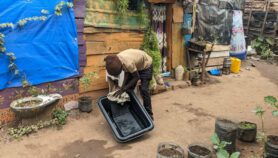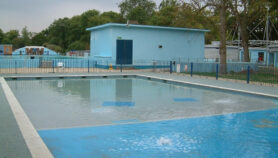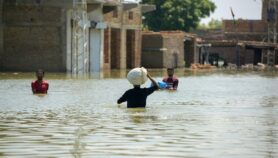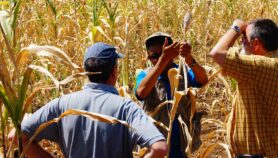By: Jane Wu
Send to a friend
The details you provide on this page will not be used to send unsolicited email, and will not be sold to a 3rd party. See privacy policy.
Scientists have developed a sponge-like membrane that enables plant roots to retain more water and regulate soil temperature — which could help agriculture in parched lands.
The eco-friendly membrane is made from organic waste matter, such as seaweed, fish bones and chicken manure. The development was announced at the annual meeting of the American Association for the Advancement of Science on Sunday (18 February).
Lead scientist Torleiv Bilstad, of the Norway-based University of Stavanger, explained that, in desert soils, no matter how much the land is irrigated, water simply drains away deep into the soil and mostly evaporates.
The membrane helps absorb more of the water around the roots, before it drains away. It comes in the form of a powder that is dissolved in water and then applied to seedlings. After absorption into the soil, the material forms a membrane around plant roots and helps them retain available water.
According to Bilstad, the extent to which the membrane can help reduce water loss varies between different plants and soil types. But in a test performed in Nigeria, the technology cut irrigation needs by 30–50 per cent.
Moreover, adding different pigments into the mixture can help regulate soil temperature by increasing or decreasing reflection of sunlight from the soil surface.
“It’s all tailored to specific needs,” Bilstad told SciDev.Net. “White pigment — made from eggshell for example — can deflect the sunshine and cool down the soil temperature. Black pigment will do the opposite.”
Bilstad said the membrane is applied for one growth season. Farmers spray the mixture on seedlings until the plants grow tall enough to shade the soil themselves.
He added that the membrane could be used alongside fertilizers or pesticides.
The technology is already being promoted in Nigeria, with plans to extend trials to Algeria and western Europe. Bilstad is considering starting a company to expand the use of the membrane globally and develop it for wider applications.













